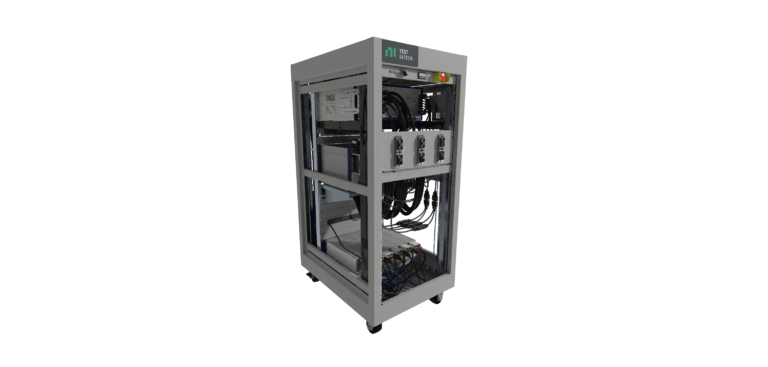US-based NI, a developer of automated test and measurement systems, has announced two new offerings it says will enhance testing environments and workflows for electric vehicle (EV) traction inverter validation: a new inverter test system (ITS) and a collaboration agreement with D&V Electronics for power-level inverter tests.
NI notes that by simulating EV powertrains to perform hardware-in-the-loop (HIL) tests of traction inverter electronic control units (ECUs), the ITS allows EV test engineers to create more lifelike scenarios not easily and accurately reproduced on the road.
“Automotive engineers are constantly modifying simulation models based on evolving electric vehicle performance and test requirements,” said Noah Reding, senior director of validation, transportation at NI. “They need scalable, software-connected solutions to seamlessly move these models from design to validation. Advancements such as these speed up EV innovation and accelerate time-to-market by increasing test coverage while eliminating inefficiencies in the testing process.”
Through the collaboration between NI and D&V, electric motor and direct current power emulators can be inserted into the test workflow to enable durability and thermal testing of the inverter component at full power in a safe, cost-effective manner. Adding more simulation fidelity and capabilities will, says the company, speed up the entire development process at a lower overall cost than field tests.
“Traction inverters are the heart of the powertrain, and inverter design technology is changing rapidly. D&V’s innovative power emulators, combined with NI’s high-speed test platforms, will offer customers future-ready capabilities that enable coverage from component to system-level testing in a controlled environment. Our team is excited to partner with NI on its new inverter test offerings, and we look forward to ongoing success,” concluded Uday Deshpande, chief technology officer of D&V Electronics.


